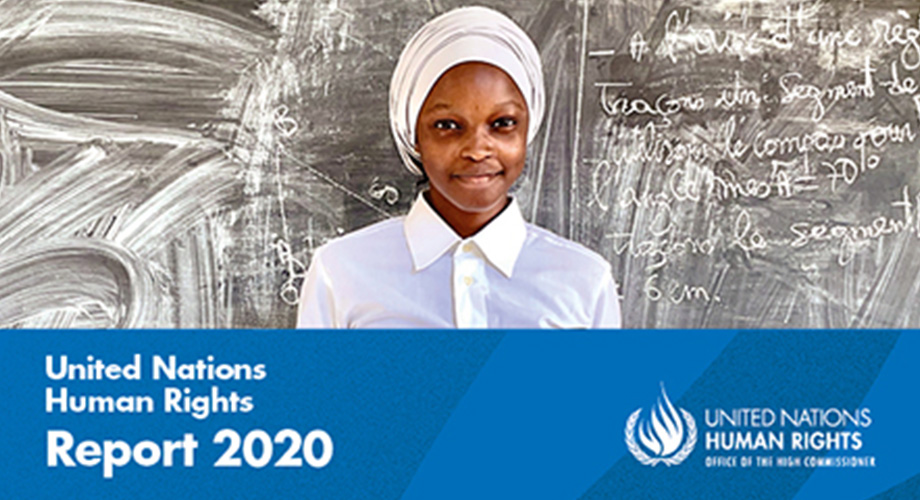UN High Commissioner for Human Rights: Annual Report 2020 - Human rights at the heart of COVID-19 response and recovery

Discrimination and inequalities increased enormously in 2020 as the COVID-19 pandemic spread, said UN High Commissioner for Human Rights Michelle Bachelet, when presenting the Annual Report of the work of her Office.
Throughout 2020, as the pandemic surged forward, UN Human Rights ramped up its support to embed effective, human rights-based policies in pandemic responses by States, UN partners, UN Country Teams and other stakeholders. The organization enhanced its monitoring, reporting and advocacy efforts to address human rights concerns during the crisis.
The UN Human Rights Office also developed a set of ten indicators to assess the human rights impacts of COVID-19 on different population groups. The COVID-19 Tracker - an information management tool to analyse trends, gather good practices and inform effective policy solutions – was also created. Additionally, UN Human Rights provided technical advice on laws and policies, issued 12 thematic guidance notes and delivered virtual training across all regions.
Some crucial areas of focus for UN Human Rights in 2020 included the protection of the right to access information on COVID-19 and its impacts; the protection of civic space and freedom of expression; and advocacy to ensure pandemic emergency measures were necessary, proportionate and fairly applied, with attention to safeguarding public health.
A record total of US$224.3 million was received in voluntary contributions in 2020, providing much-needed resources to the human rights response to the pandemic. Bachelet noted, however, that the regular budget allocation to the Office did not keep pace with the growth in the number and scope of mandated activities.
Acknowledging the continuing funding gap and the plethora of challenges that came to the fore in 2020, Bachelet reiterated that human rights must continue to be a core component of COVID-19 response and recovery.
For the full report, please visit the webpage attached below.

